Freedman’s Film Forum: “Songbird”
Junior Joshua M. Freedman watches an early premiere of the new film “Songbird” at his house on Dec. 9.
84,000,000 deaths. Humanity living in isolation. Items such as pencils and printers considered luxury goods. These staggering (somewhat) hypotheticals that would have been viewed as completely outlandish just one year ago now seem all too plausible for what the future can hold.
This is exactly what “Songbird” director Adam Mason and producer Michael Bay attempt to convey when they include all of these scenarios in this COVID-inspired film. “Songbird” is the first feature Hollywood has filmed and produced entirely during the pandemic. Filmed in 17 days, it tells the story of a dystopia in which COVID-23 has caused a national shutdown just three years into the future.
Classified as a “science fiction thriller,” I would consider this film a “realistic fiction thriller,” which is one of the reasons “Songbird” is so frightening. This is because the dismal and hostile environment presented in “Songbird” could be an accurate depiction of what society will look like in the near future if COVID were to mutate at a rate that we could not control.
When I first learned that the film included actors such as Sofia Carson, KJ Apa, Paul Walter Hauser, Craig Robinson, Demi Moore and Bradley Whitford (and to my pleasant surprise, a cameo from Adam Waheed), I had high hopes for “Songbird.” Fortunately, this movie did not disappoint.
While the movie focuses on what daily life is like during the COVID-23 pandemic in 2023, the story primarily revolves around Nico (KJ Apa), and his girlfriend Sara (Sofia Carson). While the two love each other and video chat daily, Sara and Nico have never once been so much as in the same room as each other.
Nico is referred to as a “Munnie”: one of the few members of society that is immune to the virus. “Munnies,” identifiable due to their yellow wristbands, are not confined to isolation, and have the entire world as their playground.
When all of his superiors began dying off one by one due to the virus, one nameless “Munnie” (Peter Stormare) went from being a regular sanitation worker to head of the entire Department of Sanitation, which now comes with the responsibility of hauling away not just trash, but also people positive for Covid to the infamous “Q-Zone.” As he describes to Nico, “we’re not human anymore. We’re gods.”
The people who are immune to COVID-23 are glorified in “Songbird,” as they get the best jobs, the most resources and are the most envied. Sara, on the other hand, is not a “Munnie” and therefore cannot see her boyfriend’s face in person.
While I understand that this movie is fictional, it got me thinking about how social interactions among friends and loved ones have changed and will continue to change due to social distancing. This concept is actually what partially contributed to the story of “Songbird.” “My cousin . . . started having . . . an online relationship with a girl. And they’d been planning to get together and meet for the first time, and then the pandemic showed up, and they weren’t able to physically see each other. But through FaceTime and these kinds of things, they were able to communicate every day. And I found that to be a hopelessly romantic notion, that love will prevail no matter what is going on in the world,” Mason said in an interview with Comic Book Resources.
Another aspect of the film that I thought was important was how it discussed 2020 in retrospect, and suggests what society should have done differently during the first wave of COVID in order to have curbed the spread of it. While nothing in the movie is meant to be political, it clearly shows what certain actions and behavior can lead to when dealing with a merciless virus, and the disparity between the “haves” and the “have nots.”
While “Songbird” is generally an intense, action-packed film full of love, sadness and violence, Mason ultimately wants to leave viewers with an optimistic message. “The whole movie is about human connection and how even when that’s taken away from us, we still find a way to find it,” Mason said in the same interview.
I did not find one bit of the film dry or cliché, but rather exciting and motivational in regards to wanting to help in any way possible to ensure that nothing like what is presented in the movie will ever happen.
For those who feel that they have not seen or heard enough about the pandemic, “Songbird” will certainly give you a bird’s eye view of where we could be headed if we are not careful.
Your donation will support the student journalists of Thomas S. Wootton High School. Your contribution will allow us to purchase equipment and cover our annual website hosting costs.
Joshua M. Freedman is a 2022 graduate.


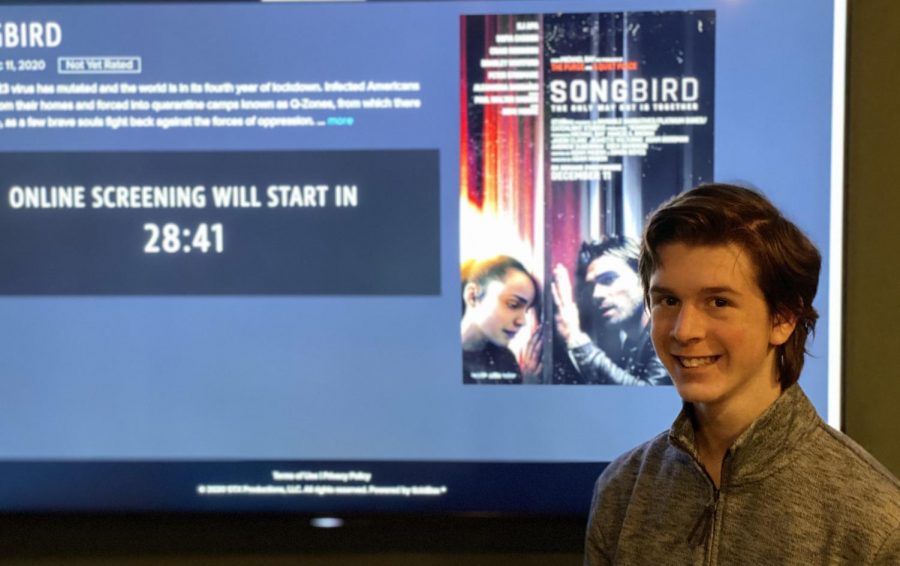
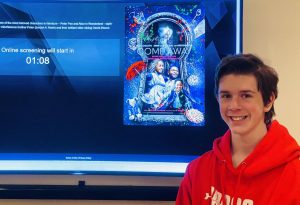
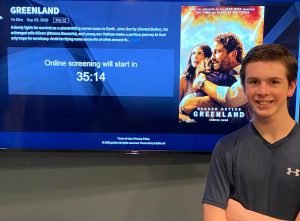
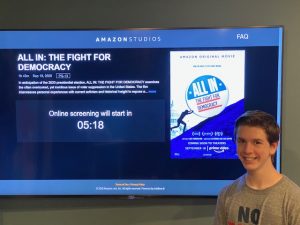
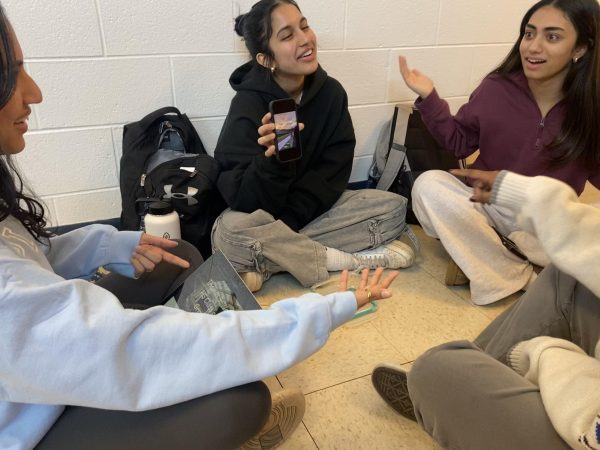



![Junior Grace Song rewatches the trailer for Anora. Promoted as "A Love Story from Sean Baker," it is the eighth feature film under Baker's belt starring Mikey Madison in the titular role. "[Anora] accurately represents women overseen and easily taken advantage of. It emotionally enticed me. The ending is so good," Song said.](https://woottoncommonsense.com/wp-content/uploads/2024/11/Rc5RQTdjtUFtyT7IyQe1rSxkpOTc6NoksY8jtoop-e1732201365565-600x450.jpg)